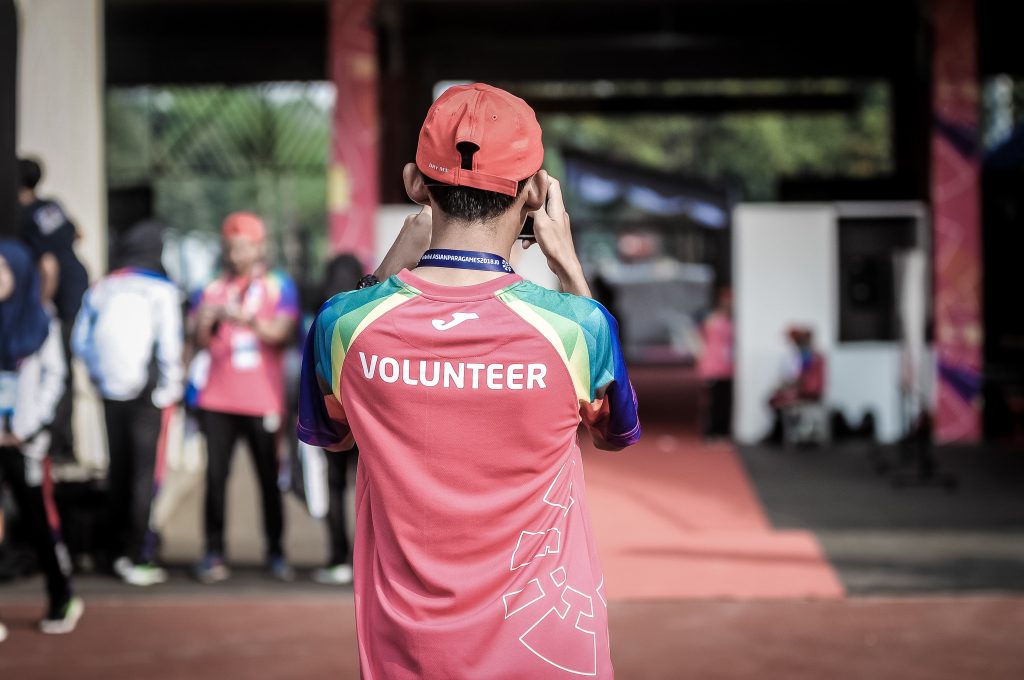Volunteering For Profit In Scotland’s Capital
Intensely rewarding, a way to give invaluable help to a worthwhile cause, and a way to build valuable skills and experience—volunteering is a fantastic pursuit that can bring you closer to worthwhile organisations and causes. A lot of great charities and groups benefit from assistance of dedicated helpers and volunteers to solve the day-to-day and advance their cause. The positive change which can be brought about bit-by-bit from volunteers is truly incredible. For some, this relationship breaks down where for-profit business ventures staff events and businesses with unpaid volunteer labour of their own.

By way of example, Edinburgh’s Hogmanay celebrations this year will be staffed, in part, by teams of unpaid volunteers working through the night and into the new year. Events firm Underbelly won the contract to produce the event from Hogmanay 2018 onwards. Underbelly’s bid, which significantly undercut its competitors, was the first to incorporate unpaid volunteer roles into the city’s celebrations.
Underbelly are expected to fill some 300 unpaid roles this year. Staffing for street teams, supervisory, and management roles will come from a pool of volunteers applying for positions. Each applicant is expected to complete a mandatory 9.5 hours training before starting their new temporary role.
In previous years Underbelly have taken criticism from staffing the cities Fringe festival events with volunteers. The firm has previously said to the press that the volunteers, who are paid attendance expenses, in no way replace paid staff for the events.
Volunteering At Scale
A large number of organisations do rely on volunteers, donations, and fundraising to keep their doors open throughout the year. The vast majority of these are extremely worthwhile causes who take care of elderly, homeless, young, and vulnerable people; injured or abandoned animals; and organise community efforts to clean and repair local areas.

People donate their time, money, and resources into these causes to advance the charity, care for the vulnerable, improve their skills, and meet like-minded people. Volunteering for a cause you believe in is, without a doubt, a noble and worthwhile thing to do.
For some, the concept of volunteering begins to crumble when there’s a for-profit entity at the heart of the business model. Of course, there are charities, and then there are charities. Schools which charge five-figure sums per year inexplicably being listed as the later. Their use of unpaid volunteers or donations, a far more complex topic not entirely worth exploring right now.
Underbelly is definitively not in either category. The firm lists itself as a ‘live entertainment company’ which boasts managing to sell over 1.5 million tickets in 2018 alone on its website. The firm has a global reach, producing similar new year events in cities around the world, selling tickets, refreshments, and merchandise in the tens of thousands at every event.
Volunteering For Big Business
Underbelly is far from the only company to take on the practice of taking on unpaid volunteers for profit. The 2012 London Olympics and 2014 Glasgow Commonwealth games both used volunteers at vast scale to support the events in their respective host cities.
The International Olympic Committee (IOC) is, it should be noted, a non-profit entity. With revenues for the London games alone just shy of two and a half billion pounds, it happens to also be one of the highest earning non-profit firms on the face of the planet. A good number of multi-national companies could barely dream towards achieving similar figures.

Some might feel an odd-squeamishness around the idea that a multi-billion pound temporary event focused around selling fast food, coca-cola, and shampoo can’t afford to pay its staff for the privilege. Even the most daring of entrepreneurs would wince at the idea of floating a similar plan as a viable business model.
The volunteers who administered, ran, and organised the games on the ground each served a minimum 9-day term without being paid even expenses to attend. People travelled far and wide, spending huge amounts of money to work, often menial, jobs at an event which generates millions upon millions for its owners.
Clearly, people signed up in droves. A huge number of people went to both games and reports circulated widely after demonstrated a lot of people had an exceptional time volunteering to be a part of something much greater than an ordinary sporting event. Perhaps it’s curmudgeonly to suggest the idea is a cynical one, demanding that organisations pay their staff and people have a right to make a living while servicing the needs of these gigantic events. After all, no-one is forcing anyone to help out.
Working At The Games
Yet, there’s still a sticking point. There’s a nasty, creepy feeling right in the depths that doesn’t quite sit right. It feels, almost, as if every single person is making money from the games apart from the people who work them.

Even the athletes themselves are at the lower end of the scale when it comes to pay. In the modern-day, competitors typically receive a fairly average salary from their own sports governing body. A rare few breakthrough to reach sponsorship level and receive large amounts from firms and advertising, but these are very much the exception. Largely, most athletes make very little during their time in sport.
As you look higher in the organisational tree, money and salaries for the Olympics get larger and larger. Sponsorship deals (approved Olympic advertising), TV rights, and partnerships go for hundreds of millions each for every games in a four-year cycle.
Cosmetics manufacturer, Proctor And Gamble, paid more than £60 million to advertise at the 2012 Olympics and made more than £300 million from its efforts. McDonalds, Coca-cola, Visa, Samsung and others all paid vast sums of their own to brand the games with their own logos, each made millions from the games and their aftermath.
The games were unquestionably a great thing. They inspire many people into sport, provide a fantastic event, and promote great causes along the way. They are however, a far cry from a weekend’s park run, or a county athletics event. It would be bizarre to see Usain Bolt’s parents staffing the finish line or setting up the starter’s blocks. It’s equally as bizarre to have unpaid staff administering and running every event.
People Need Paid

There’s no doubt people will turn up to volunteer and Edinburgh’s Hogmanay celebration will go ahead with enough people to run smooth and well. The practice though, is something which needs careful examination. People working events designed to sell, entertain, and create a profit deserve to be paid.
Underbelly, in their own annual report, announced that each of their staff is paid in line with the living wage. This tweak of language itself is enough to warrant a sly smirk.
As long as people are happy and willing to attend on their own accord, though it is hard to see why, then there is very little issue. However, we should be very wary of this becoming an acceptable new normal.
Unpaid internships are already widely seen as distasteful, a way for employers to prey on industry newcomers looking for a route into a new career. Corporate volunteer positions which risk becoming a minimum standard to plump a C.V could very well be the same phenomenon by another name.
Volunteering for a helpful cause, to do good and improve lives is one of the most exceptional things you can do with your time. But as individuals, we should consider precisely who is benefiting both upstream and down. As a society, we should strongly consider the practice of profit-seeking corporation with the wealth and resources of McDonald’s, P & G, and Coca-Cola benefiting from volunteer labour.